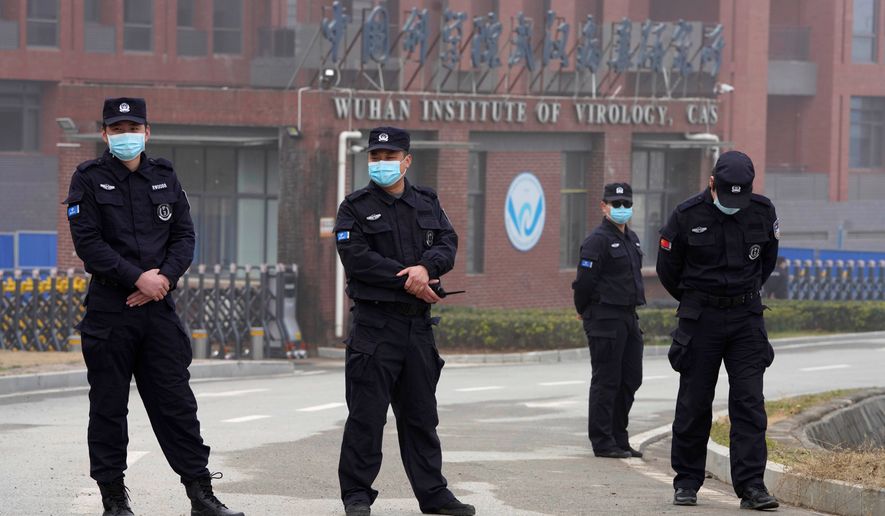The Defense Department can’t account for all of its money that may have been sent to China to conduct risky research enhancing viruses, according to an inspector general’s report that blamed bad data collection at the department for gaps in understanding what it was paying for.
The audit, released late last month, said department officials insisted they did not knowingly fund experiments that could have reasonably resulted in pandemic pathogens. And the inspector general had no reason to doubt those assertions.
But investigators faced “significant constraints” on their probe, thanks to the data problems at the department. In particular, it can be difficult to suss out from Defense Department systems whether contractors doled out work to subcontractor labs in China or other nations.
The only way to figure out where all the research money ended up would be a full manual review, and neither the department nor the inspector general had the resources to do that.
“Therefore, the full extent of DoD funds provided to Chinese research laboratories or other foreign countries for research related to enhancement of pathogens of pandemic potential is unknown,” the inspector general said.
The report is part of a reckoning of America’s funding for research in adversary nations where controls are considered less strict, and thus risks of mishaps are higher.
In the case of China, some U.S. agencies believe the coronavirus leaked from a research lab in Wuhan. The Institute of Virology received U.S. funding, though the agencies that provided the money say it was not meant for the sort of gain-of-function research that is one explanation for COVID-19.
The inspector general said the Army identified 12 grants that saw money go to China or another foreign country for virus enhancement research.
The Defense Threat Reduction Agency identified another 13 projects that awarded money to EcoHealth Alliance, but none of that money appears to have been spent in China.
That’s critical because EcoHealth is the firm that siphoned U.S. dollars from the Health Department to the Wuhan lab. EcoHealth says the money was not used for gain-of-function research.
The report is heavily redacted, raising more questions about what investigators did find.
Sen. Joni Ernst, Iowa Republican, sponsored the legislative language urging the report. She told the Pentagon to release an unredacted version.
“It is deeply troubling that the government, especially DoD, cannot account for how much taxpayer money is being sent to China or why and it is hiding what it does know from the public,” she wrote in a letter to Defense Secretary Lloyd Austin.
She said the information isn’t classified or considered proprietary so it was mysterious that it was being shielded from the public. She said it might even run afoul of the Federal Funding Accountability and Transparency Act.
The senator said in one instance one of the redactions refers to a project that the Defense Department already acknowledges on its website, albeit without any mention of Chinese connections or “the collaboration with a company closely affiliated with China’s People’s Liberation Army (PLA) and the Chinese Communist Party.”
“With DoD secretly funding risky research on dangerous pathogens and diseases in China, this alarming Inspector General investigation demonstrates Washington hasn’t learned any lessons from the COVID-19 pandemic,” Ms. Ernst said.
Sen. Rand Paul, the top Republican on the Homeland Security and Governmental Affairs Committee, also demanded answers, pronouncing himself “deeply concerned.”
“It is unacceptable that DoD cannot account for the full extent of taxpayer funding it has spent on pandemic pathogen research at Chinese research laboratories. This lack of oversight represents a significant gap in our national security and undermines public trust in the DoD,” he said.
For more information, visit The Washington Times COVID-19 resource page.
• Stephen Dinan can be reached at sdinan@washingtontimes.com.




Please read our comment policy before commenting.